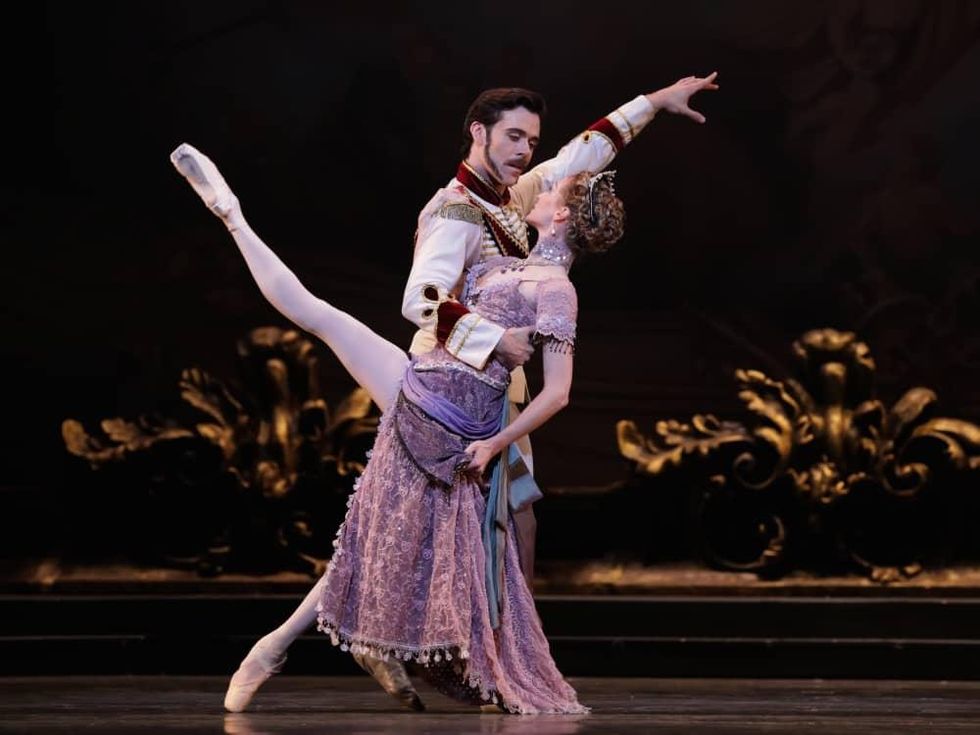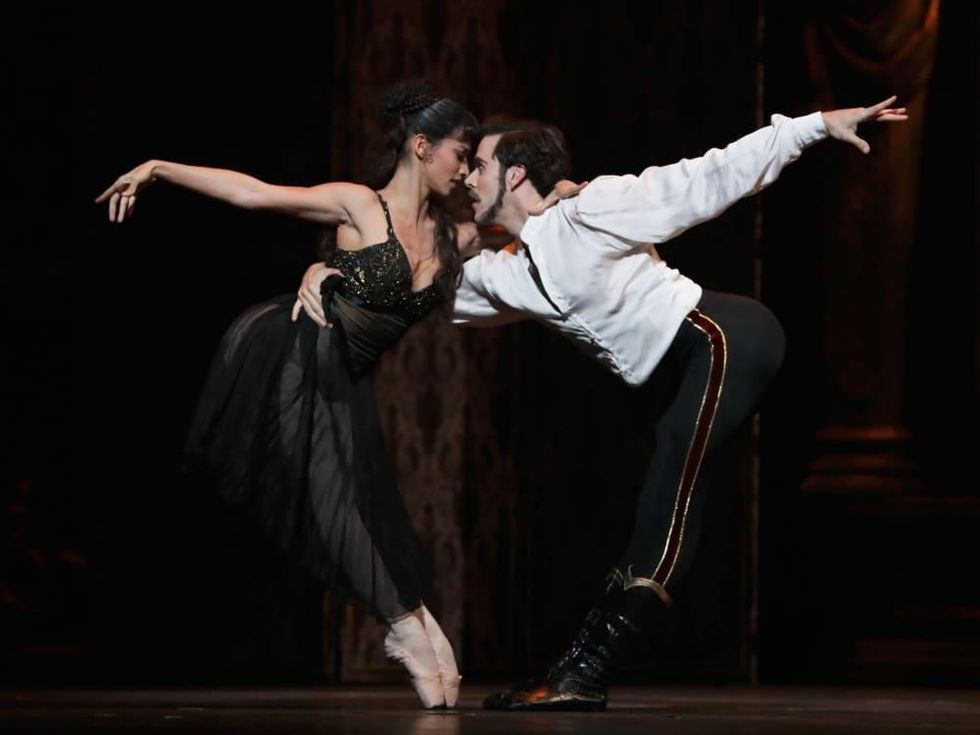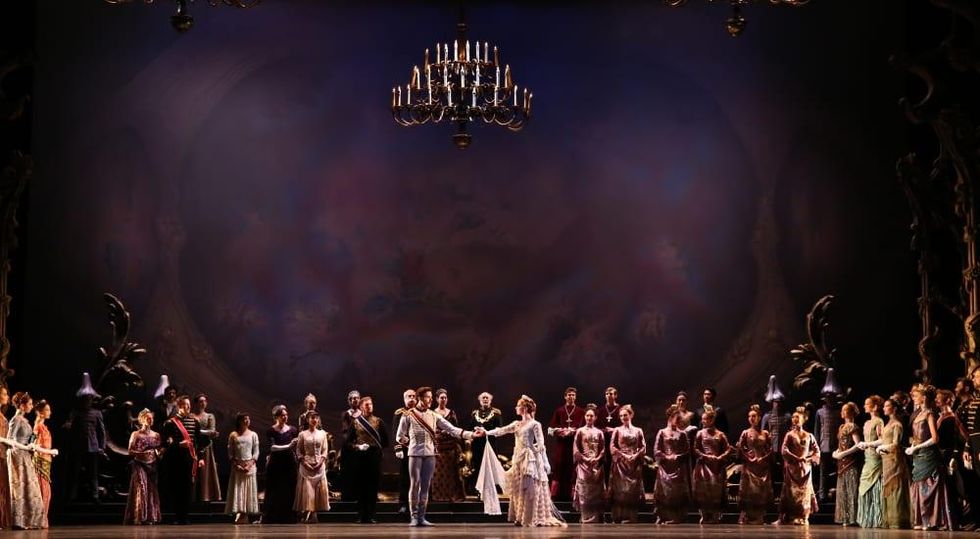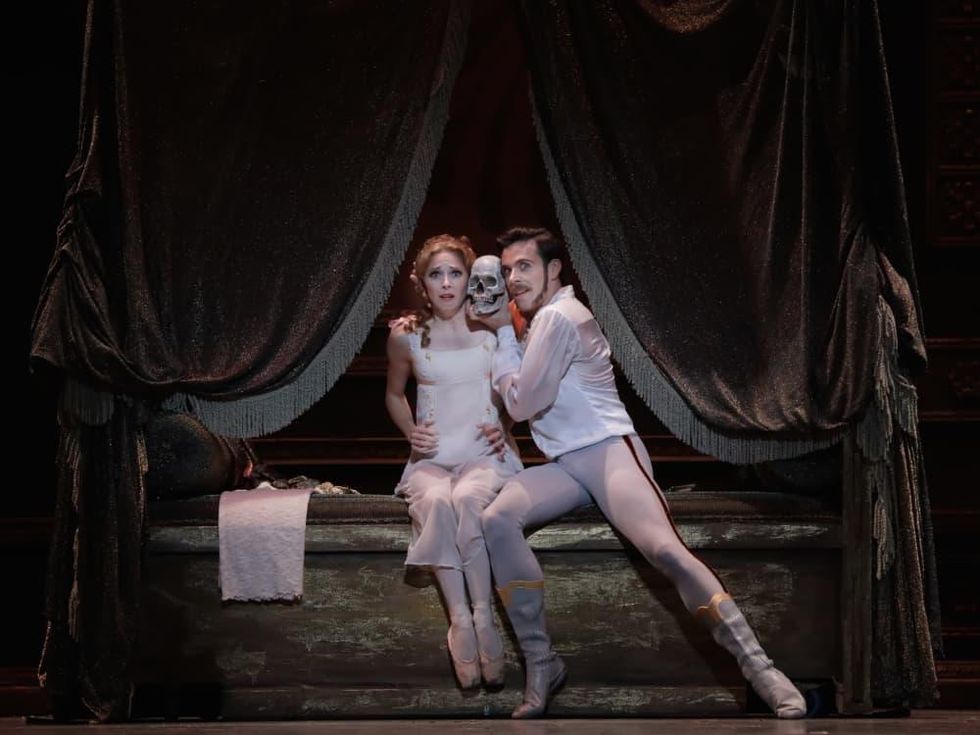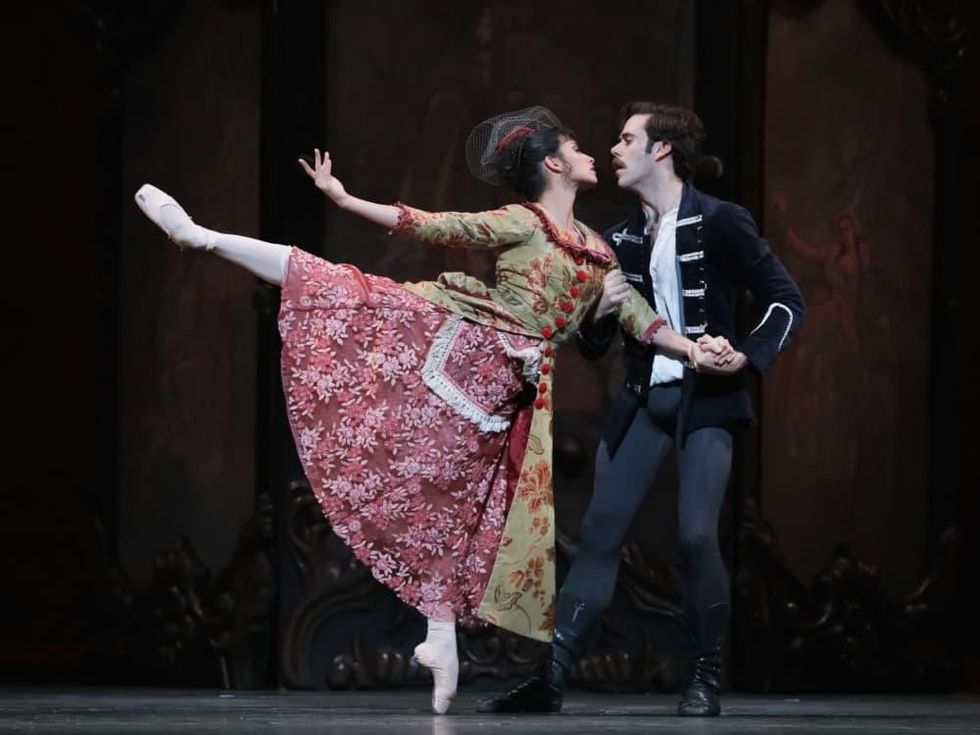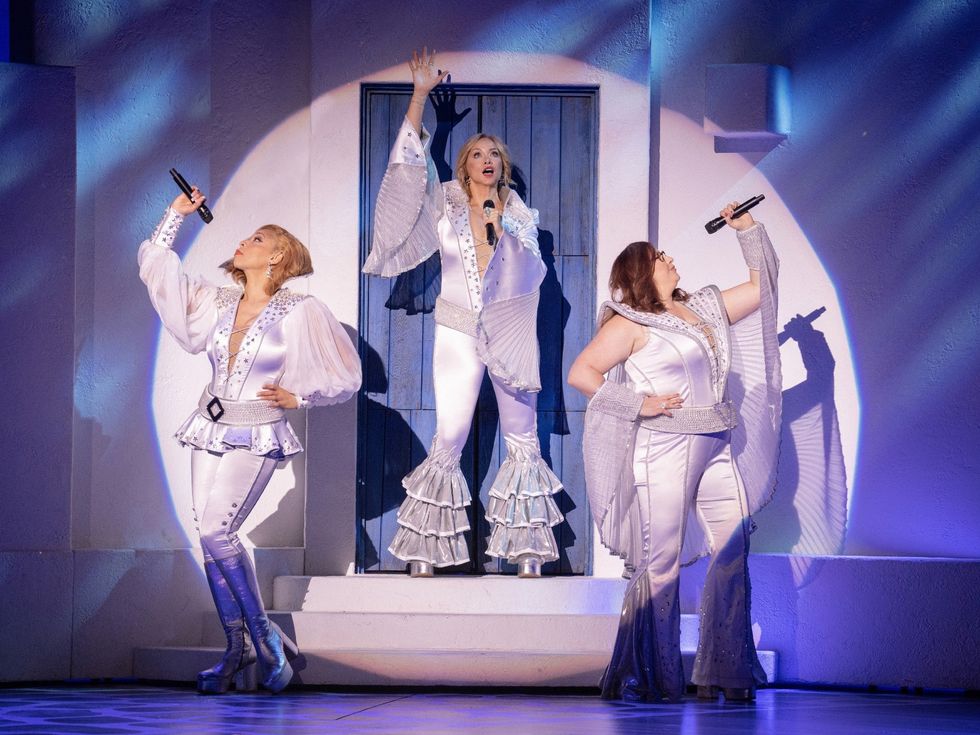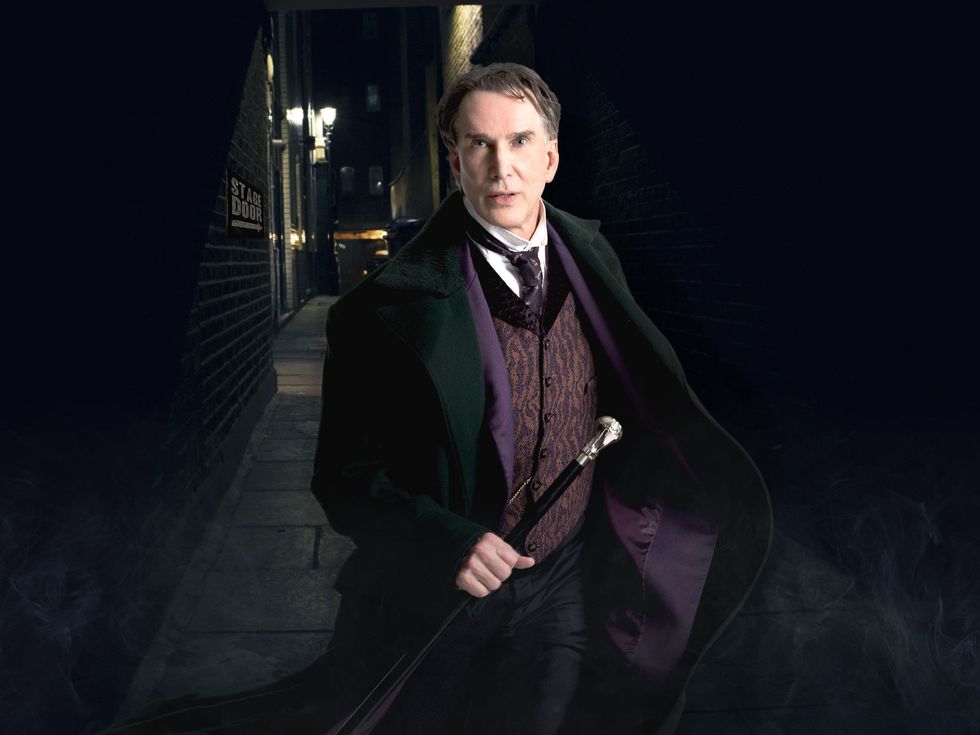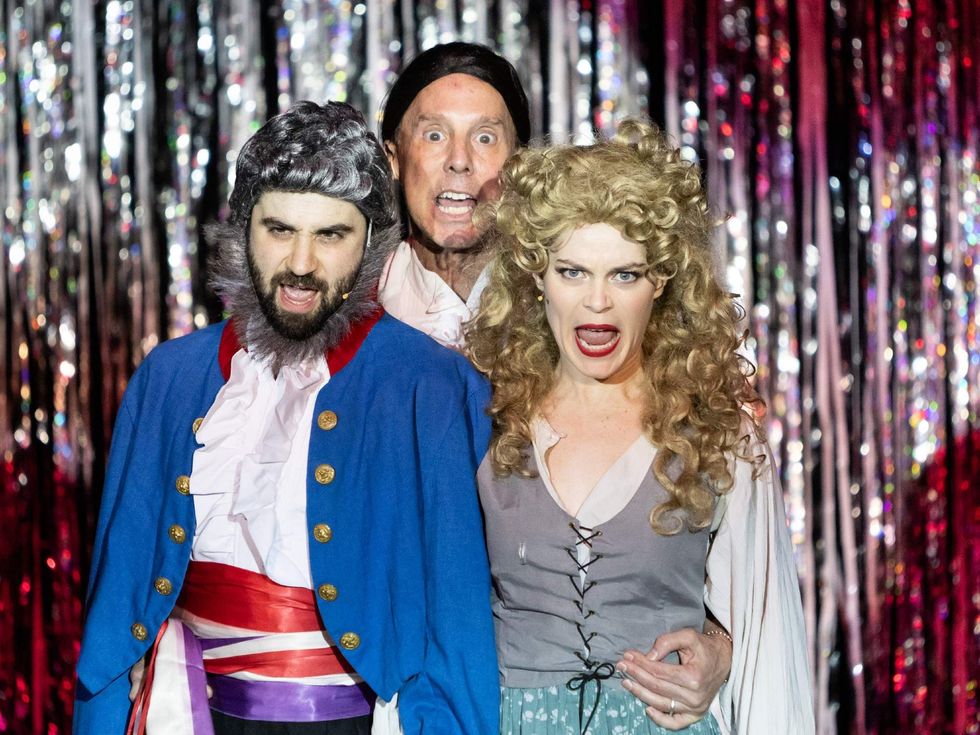Guns and Roses
Houston Ballet's triumphant Mayerling surges above the storm with night full of hope for the arts
Some nights are special: a premiere, a gala, a promotion, a retirement. These are important but anticipated triumphs. At Houston Ballet’s performance of Kenneth Macmillan’sMayerling, Houstonians were treated to something truly extraordinary in the company’s first outing in a still storm-ravaged city.
It was a night full of the hope of the arts world getting back to what it does so well. Mayor Sylvester Turner, a steady hand for the city during this unprecedented storm, graced the occasion. On stage, he was equally comforting. “The show must go on,” Turner said.
And boy did it.
With the Wortham Theater Center out of commission until at least mid-May, the ballet, Houston Grand Opera, Houston Symphony, Inprint, Da Camera, and others have scrambled for viable venues. What a happy accident the Houston Ballet landed in Sarofim Hall in the Hobby Center.
Change is hard, though, so it all felt strange at first. Guards with security wands screened us, producing long lines to enter. Regular ballet goers struggled to find seats in a strange venue. The ushers too seemed overwhelmed. “Just make it work—sit anywhere,” one insisted as the lights dimmed. During scene changes, an unusual amount of commotion and noise filtered out.
But there was an intimacy in Sarofim Hall I’m not always accustomed to in the Wortham Theater Center. The dancers felt closer, more at eye level. The orchestra was nearer and more visible. I had a fine view of principal harpist Joan Eidman’s sweeping across her strings all night. During an intermission, someone nearby said, “I wouldn’t mind seeing more ballet here.”
In any season, the addition of Kenneth Macmillan’s 1978 Mayerling to the repertoire would be a major story. The rarely performed ballet shows Macmillan at his best, gives Houston Ballet access to a work not regularly in repertoire elsewhere in the country, and complements Macmillan’s Manon, which the company performs beautifully. John Lanchbery’s arrangement makes the most of the works of Franz Liszt, alternately eerie and stately and doomed. And who can complain about live piano and an aria on stage?
It’s a testament to the captivating power of this work that minutes into the action, thoughts of the stricken Wortham Theater Center fled almost entirely. The often-overwhelming plot of the ballet is drawn directly from historical accounts of the lives, loves, and lunacies of the aristocrats of the Austria-Hungarian empire and named for where it all went terribly wrong. The cruel and unstable Crown Prince Rudolf, magnificently played by Connor Walsh, is a revolver- and skull-toting thrill seeker descending into syphilis- and morphine-induced madness before our eyes. It's no surprise when the ballet culminates with not one but two lives coming to a halt at the end of of that revolver.
Rudolf boasts not only a current mistress and a former mistress but also a favorite (or two or three or more?) at the local brothel. He enjoys an awfully close and tempestuous relationship with his mother, Empress Elisabeth, who also boasts a man on the side.
Like mother, like son, apparently.
Macmillan demands much of audiences and dancers alike. Love is often rough sex barely dressed up, if at all. Consequently, movement is intricately twisted, the onstage architecture of bodies complex, and the psychology queasy. And unlike many classic story ballets, performers must create an utter seamlessness between dancing and acting.
No one was more adept at this than Walsh, reckless and unleashed and dancing with an abandon I’ve never seen in him. Walsh has always seemed perhaps the most technically precise dancer in the company, which doesn’t always suit the languorous romances and simple psychologies of classic prince roles. Not surprisingly, Walsh was more than ready for the physical demands of this central role. It’s rare that the spotlight is not on Prince Rudolph. But the psychological demands, which he met head on, are even more extreme.
Early on Walsh balances the urgencies of competing mistresses. His former mistress Marie Larisch (Sara Webb) solicits his attention as his new wife, Princess Stephanie (Melody Mennite), promenades for the court while his soon-to-be mistress,Mary Vestera (Karina Gonzalez), waits in the wings. Bounced around from the coyly enticing Webb to the demurely skittish Mennite to the aggressively eager Gonzalez literally spins him around. Add to that maddening visions of his mother’s affair and the ravages of disease and drugs you a man who literally changes his mood and movement minute by minute.
The prince’s descent into madness in the final act requires that most difficult of tasks for a virtuosic dancer—exceptional control paired with mentally compromised and physically inhibited behaviors. What a feat to master: bravo, Mr. Walsh.
Macmillan’s choreography converts into exquisitely tortured movement the debased longings of these characters. Movement is simultaneously perfect and blemished. A pas de deux is never just a pas de deux. Maybe the lovers twist their bodies outrageously. Maybe a life ends with a partner dragged awkwardly across the floor. A caress can turn into a choke. Perhaps the lovers are watched. Or, as for Walsh and Gonzalez, you have a pas de trois with a skull. What strange bedfellows Macmillan makes!
Mayerling is made with a great male lead in mind, but it’s amazing just how many dancers shine. There were absolute scene stealers all night long. The magnetic Ian Casaday appears briefly, as Empress Elisabeth’s lover and suddenly it’s as if he’s the star of the show. Whenever Webb appeared it was as if Manon herself had arrived to seize the title role.
No detail seemed too small for Macmillan’s lavish attention, making small parts profound. Prince Rudolf’s four companions appear to deliver the news of the land. They pop out in sequence from four openings in a red curtain and the news literally travels from body to body. Princess Elisabeth’s maids made clockwork perfection of their work. The one sour note, in an otherwise intricate and rousing brothel scene, was the wooden performance of Yuriko Kajiya, who played Mitzi Caspar, prime prostitute and mistress to the prince, with a distracting stiffness counter to Macmillan’s sensibility.
Though drawn from history, Mayerling has the feel of 19th century novels. Entire nations might rip themselves to shreds because Rudolf loves Mary but no longer Marie and he only married Stephanie because he has to while Elisabeth is hot for Bay but must keep Franz Josef from knowing. What marvelous distraction aristocrats make as they fall apart.
Yet real destruction is always near, as history tells us, as Mayerling shows us, and as Houstonians know all too well.
------------
Houston Ballet's production of Mayerling runs September 22-24, at the Hobby Center's Sarofim Hall.
